Description
Olmecip 40 is currently being used as an antihypertensive agent for patients intolerant of other high blood pressure medicines belongs to the drug class angiotensin-converting enzyme. It contains the active ingredient Olmesartan which is the latest angiotensin-II receptor blocker approved for the treatment of hypertension. The once-daily dosing, minimal adverse effects, and a well-tolerated safety profile make it an ideal treatment for those who are failed to respond to other anti-hypertensive drugs. The drug may also help to reduce the risk of cardiovascular events. But more studies are needed to determine whether the hypertensive drug might prove useful in treating cardiovascular problems.
Olmesartan also reduces the chances of future cardiovascular health problems. Olmesartan is a prodrug that works by blocking the binding of Angiotensin-II to the receptors. Angiotensin-II has two prime effects:
- Constriction of blood vessels
- Salt and fluid retention in kidneys by forming aldosterone hormone.
Olmesartan stops the formation of Angiotensin-II which in turn causes relaxation of blood vessels or reduces the Vasoconstriction and the secretion of aldosterone.
Olmecip 40 mg does not appear to have drug interactions in the clinical trials. However, experts ask to avoid certain drugs during Olmesartan, and these may include prazosin, propranolol, verapamil, benazepril, captopril, carbamazepine, cisapride, cyclosporine, dofetilide, alprostadil, baclofen, glyceryl trinitrate, and clonidine. Also, ciclosporin and heparin can cause hyperkalemia when taken along with Olmesartan. Co-administration warfarin or digoxin should also be reported to the doctor. The co-administration of antacids does not significantly alter the effects of Olmesartan, but let your doctor know if you are using an antacid while using Olmecip 40 mg. Your doctor may check you for kidney function, blood pressure, and the number of electrolytes in your bloodstream. During treatment, it is important to contact your doctor if you develop severe persistent diarrhea and weight loss. In that case, your doctor may evaluate your symptoms and decide on how to continue your blood pressure medicines. You must tell your doctor if you are pregnant as it is not recommended in early pregnancy.
Angioedema and a persistent dry cough are two adverse effects that may limit the use of Olmecip 40 mg. Common side effects of Olmecip 40 mg are tiredness, sore throat, infection of the urinary tract, blood in the urine, sickness, indigestion, stomach ache, diarrhea, headache, gastroenteritis, backache, or joint pain. Other side effects of Olmecip include weakness, reduced, reduced kidney function, skin allergy, spinning sensation, and muscle pain.
Olmecip 40 mg is supplied in the form of tablets for oral administration. You may take it without regards to food. For appropriate dosing instruction, refer your prescription. If you are still in doubt, please call your doctor. If this drug does not control your blood pressure, your doctor may prescribe you a diuretic. For elderly patients with severe renal dysfunction, dose adjustment may be required, however, for patients with mild to moderate renal impairment, dose adjustment does not appear necessary.
Additional information
| Tablet/s | 30 Tablet/s, 60 Tablet/s, 90 Tablet/s |
|---|

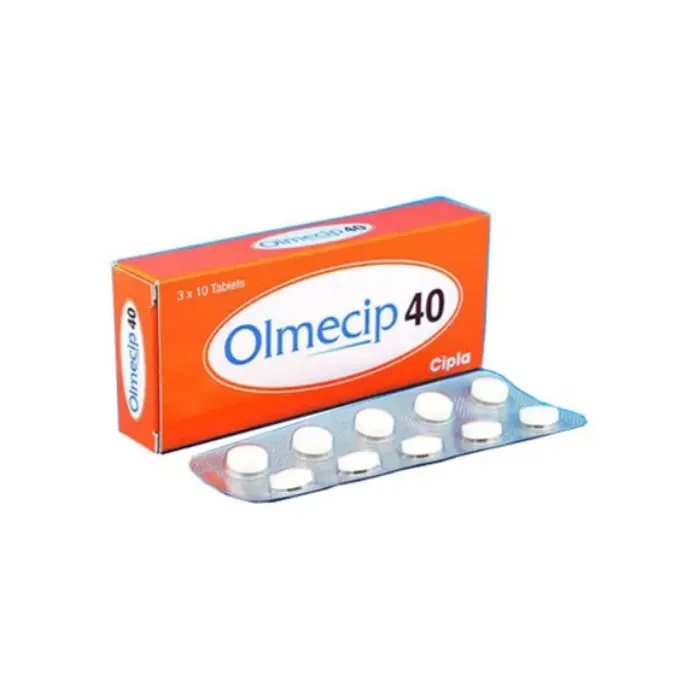
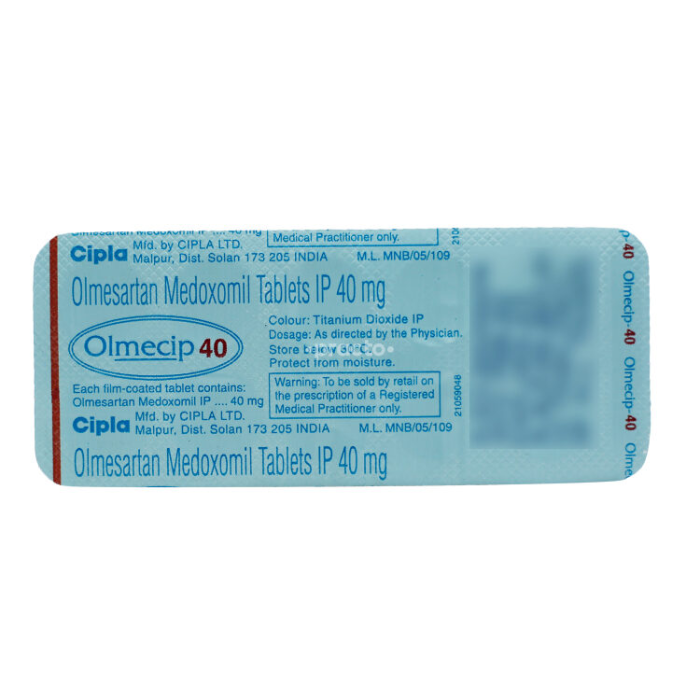
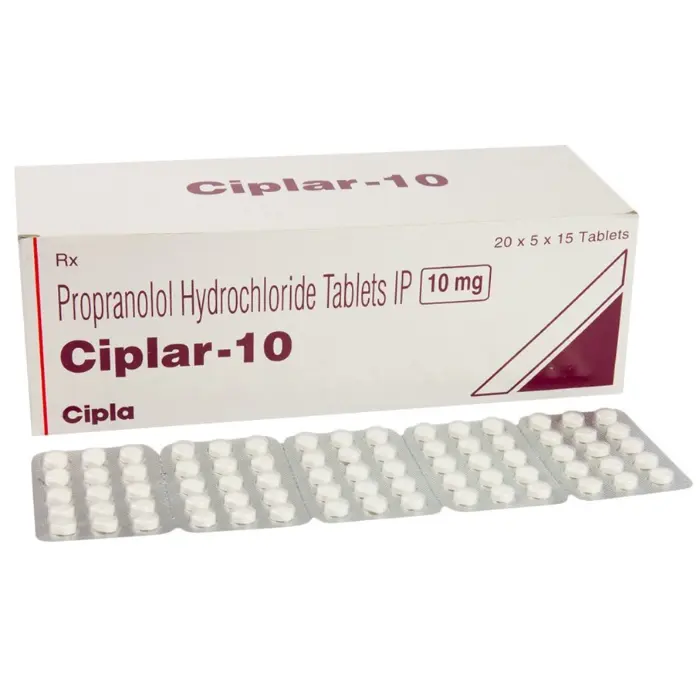
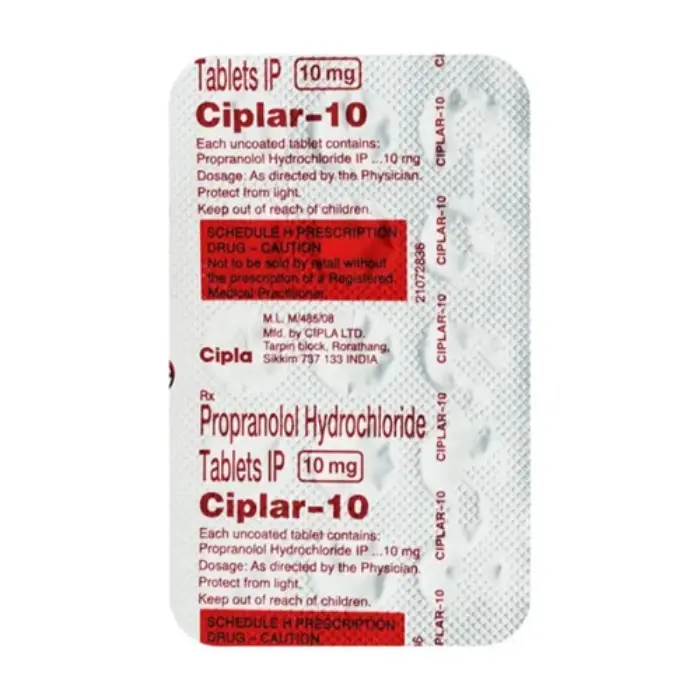




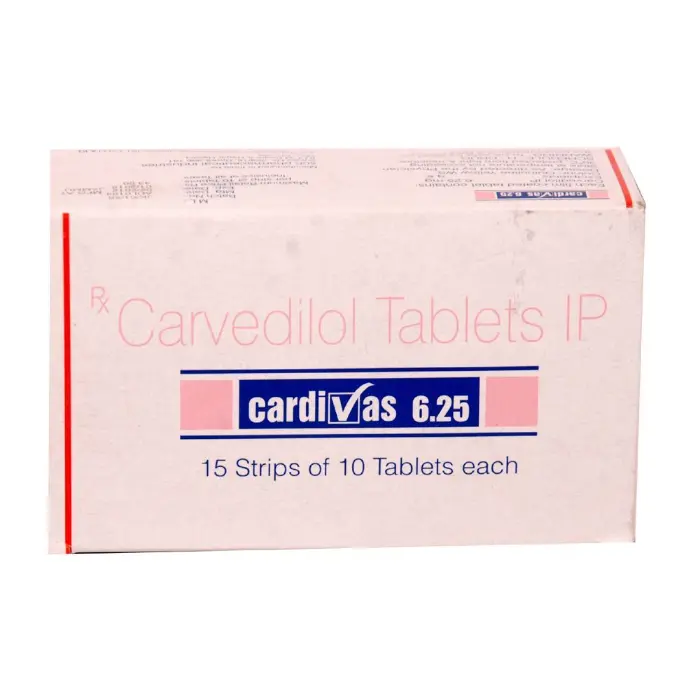
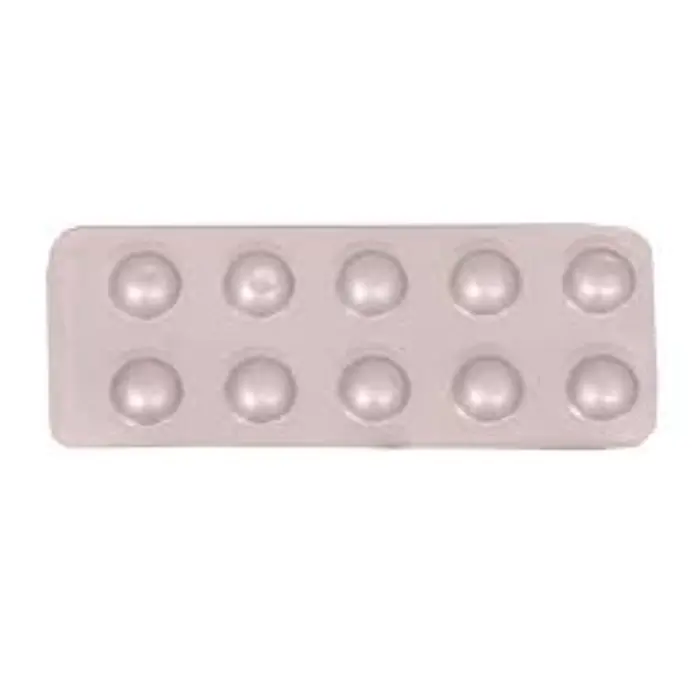








Reviews
There are no reviews yet.